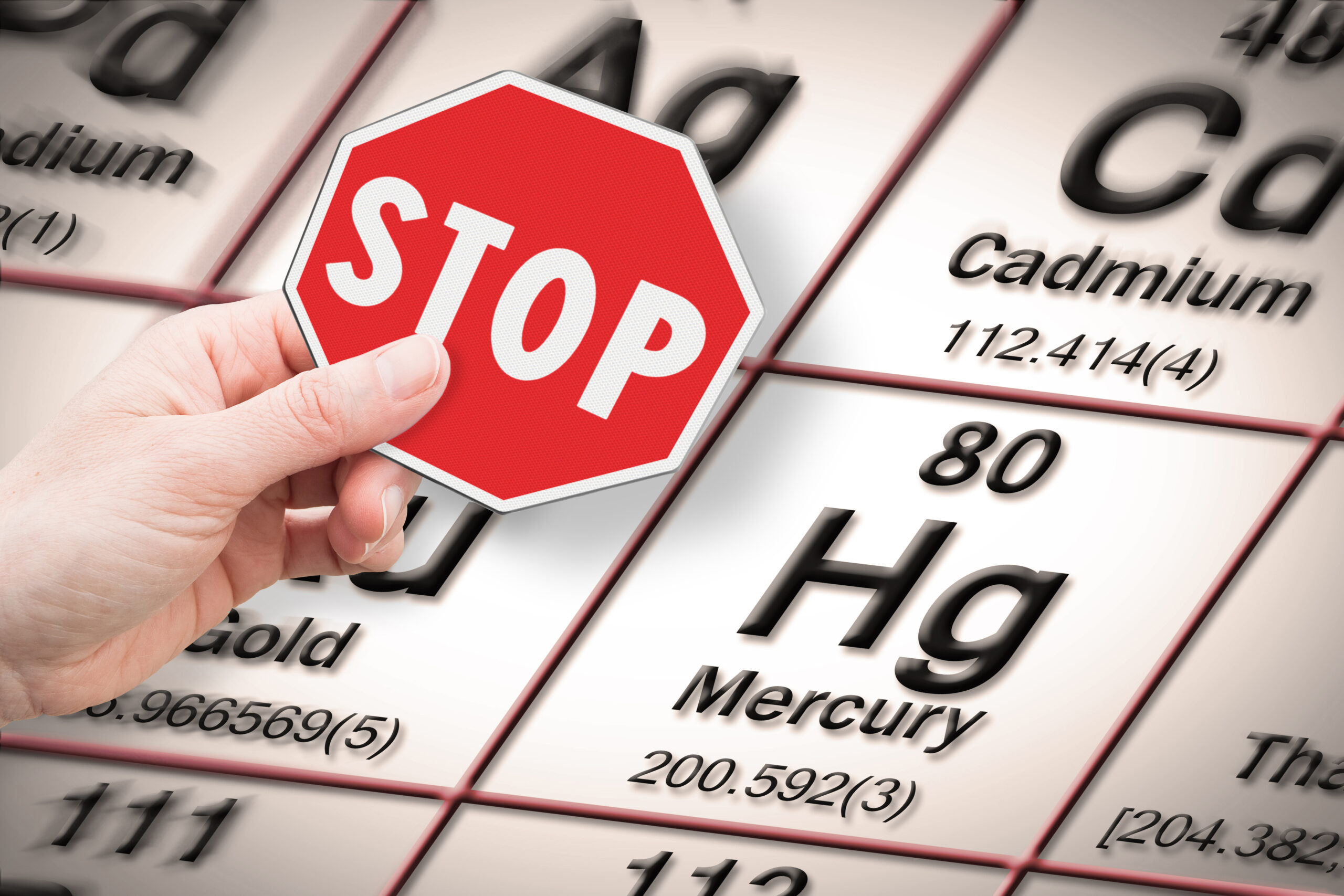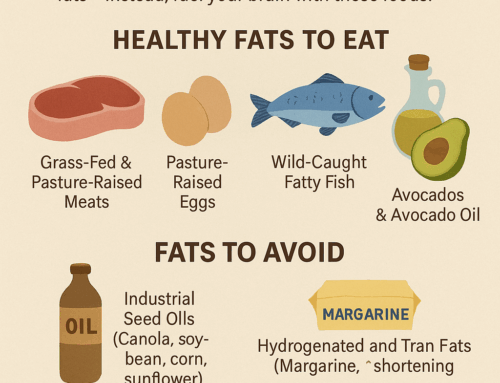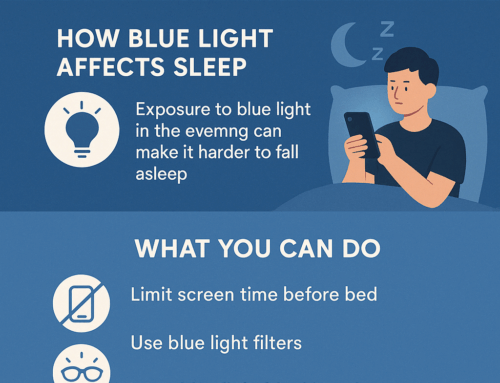How Heavy Metals Can Affect Mental Health
Our environment contains toxins, including heavy metals such as lead, mercury, arsenic, and cadmium. While these metals are naturally present, excessive exposure—whether through food, water, air, or industrial materials—can harm our physical and mental health. Understanding the connection between heavy metals and mental well-being is crucial to maintaining a healthy mind and body, empowering us with the knowledge to make informed decisions about our health.
What Are Heavy Metals?
Heavy metals are elements with a high atomic weight and density. Some, like iron, copper, and zinc, are essential for bodily functions in small amounts. However, toxic heavy metals like lead, mercury, aluminum, cadmium, and arsenic can accumulate in the body over time, leading to various health problems.
Heavy metal exposure can happen through:
- Contaminated water (lead pipes, polluted wells)
- Certain foods (e.g., fish contaminated with mercury)
- Air pollution (industrial emissions)
- Dental fillings (amalgam containing mercury)
- Personal care products or cosmetics
- Industrial or occupational exposure
The Link Between Heavy Metals and Mental Health
Research shows that heavy metals can have profound effects on mental health by disrupting the central nervous system and impairing brain function. Here are some key ways in which heavy metals impact mental well-being:
- Brain Toxicity and Neuroinflammation
Heavy metals like lead and mercury can cross the blood-brain barrier, a protective shield for the brain. Once inside, they trigger inflammation and oxidative stress, damaging neurons and impairing brain function. Neuroinflammation is linked to mood disorders, cognitive decline, and even neurodegenerative diseases like Alzheimer’s.
- Example: Mercury poisoning from contaminated fish can result in memory problems, mood swings, and anxiety.
- Disruption of Neurotransmitters
Heavy metals interfere with the production and regulation of neurotransmitters like serotonin, dopamine, and norepinephrine. These chemicals are critical for mood stabilization, focus, and emotional balance.
- Low serotonin levels can cause depression, irritability, and sleep disturbances.
- Dopamine disruption may lead to attention deficits, low motivation, and anhedonia (loss of pleasure).
- Cognitive Impairment
Heavy metal exposure is strongly associated with cognitive decline. Lead exposure, particularly in children, can lower IQ, impair memory, and reduce problem-solving abilities. In adults, chronic exposure can contribute to brain fog, poor concentration, and memory loss, all of which negatively impact mental health.
- Hormonal Imbalances
Heavy metals can mimic or disrupt endocrine (hormonal) function. Since hormones like cortisol, thyroid hormones, and melatonin influence mood and mental clarity, any disruption can exacerbate anxiety, depression, and sleep disorders. To learn more about hormones and depression, visit TalkSpace.
- Lead and cadmium, for instance, can reduce thyroid function, leading to fatigue, low mood, and cognitive sluggishness.
- Anxiety and Emotional Instability
Chronic heavy metal exposure can create symptoms similar to anxiety disorders. Tremors, restlessness, and heightened nervousness are common in individuals with elevated mercury or arsenic levels.
- Mercury poisoning has historically been linked to “Mad Hatter” syndrome—named after hat makers who suffered psychological and neurological symptoms due to mercury exposure in the 19th century.
Sources of Heavy Metal Exposure
It’s essential to identify where exposure might be happening:
- Water: Lead pipes or polluted wells can contaminate drinking water.
- Fish: Large fish like tuna and swordfish are often high in mercury.
- Industrial Areas: Living near factories can increase exposure to lead, cadmium, and arsenic.
- Dental Fillings: Older amalgam fillings contain mercury, which may release small amounts into the body.
- Household Products: Some cosmetics, paints, and personal care items contain harmful metals.
Reducing exposure to Heavy metals and detoxifying the body can significantly improve mental health. As individuals, we can take proactive steps to reduce our exposure. Here are some actionable steps we can take:
Reducing exposure and detoxifying the body can significantly improve mental health. Here are actionable steps:
- Filter Your Water
Install high-quality water filters that remove heavy metals, particularly lead and arsenic.
- Choose Fish Wisely
Opt for smaller fish like sardines, anchovies, and wild-caught salmon, which contain lower mercury levels.
- Support Detoxification
Certain foods and supplements can help the body eliminate heavy metals:
- Cilantro and chlorella bind to metals and support detoxification.
- Garlic and onions contain sulfur compounds that assist the liver in detoxing heavy metals.
- Supplements like N-acetyl cysteine (NAC) and glutathione can enhance cellular detoxification.
- Test for Heavy Metals
If you suspect exposure, consider testing through urine, blood, or hair analysis to measure heavy metal levels.
- Avoid Contaminated Products
Choose natural or verified-safe cosmetics, cookware, and personal care products free from heavy metals.
The Path to Better Mental Health
Heavy metals are often overlooked as a factor in mental health. However, understanding their potential to disrupt brain function, neurotransmitters, and hormones can reduce exposure and support our body’s natural detox processes. This knowledge can inspire hope and motivation for a healthier, clearer, and more balanced mental state.
If you’re struggling with unexplained mood swings, anxiety, brain fog, or fatigue, consider exploring heavy metal toxicity as a possible root cause. Minimizing exposure and supporting your body can protect your physical health, mental clarity, and emotional well-being.
Take care of your mind by taking care of your environment. A cleaner body leads to a healthier brain.
To learn more about how chemicals affect our mental health, click here.







Leave A Comment